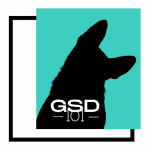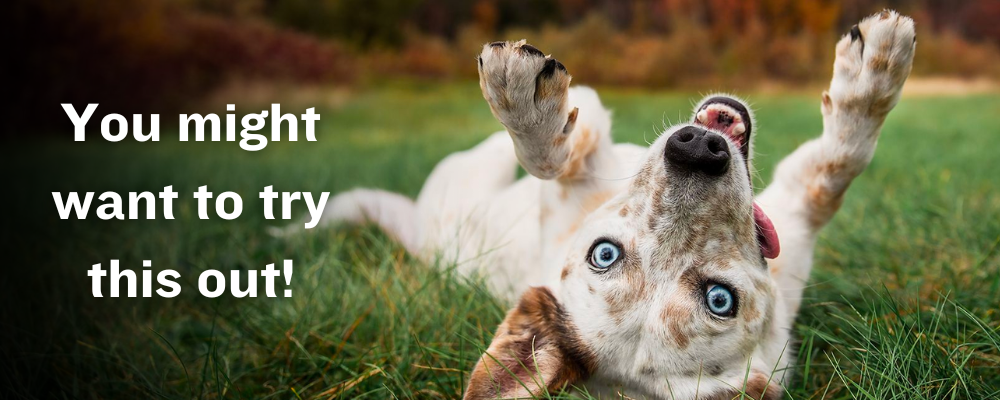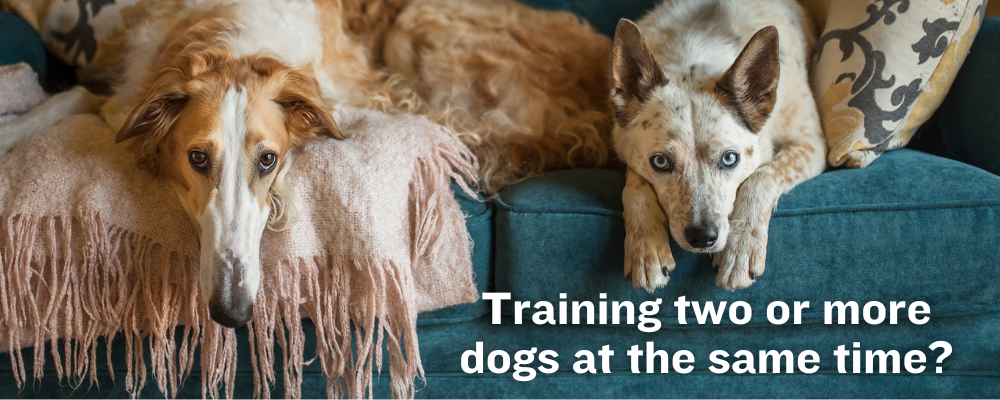When our beloved German Shepherds show aggression toward us, it can be heartbreaking. We provide them with all of the best things, but they’ve just growled or maybe even bitten us when we tried to get near their food. This is a difficult behavior for most GSD families to understand, but it can be worked through.
Food aggression in German Shepherds is a natural behavior that is referred to as resource guarding. The GSD will determine that their food, bowl, or any other object or even person, is of high value to them – and in turn, has no interest in sharing. Careful steps must be taken to help him to feel safe around food – a very valuable resource.
If you want to stop your German Shepherd from showing food aggression towards you, it’s very important to let him feel safe about sharing his food with you. We can learn to read the signs that he’s uncomfortable so that it doesn’t get worse.
More posts on German Shepherd aggression
- Are German Shepherds Dangerous? Here’s What You Need to Know
- Why Is My German Shepherd Suddenly Aggressive Towards Me?
- Why is My GSD Suddenly Aggressive Towards My Husband?
- Why Is My German Shepherd Aggressive Towards Strangers?
- Will A German Shepherd Attack an Intruder Untrained?
- How To Tell If a German Shepherd Puppy Is Aggressive?
- How to Stop Food Aggression Towards People in German Shepherds?
- Why Do German Shepherds Growl? And What Should I Do About It?
What is it Like When German Shepherds Show Aggression?
A German Shepherd is a very good communicator and will show you that he is not interested in sharing his food with you.
When a German Shepherd shows aggression towards us in relation to his food or treats, he will sometimes offer low-level stress signs first, but sometimes, depending on the severity, he will go straight to growling, snapping, lunging, and even biting.
How Bad Can It Get When German Shepherds Show Aggression?
A German Shepherds’ bite force has been researched and measured using digital bite meters, at 238 psi – this is comparable to the 162 psi bite force of a human being. When a German Shepherd shows food aggression, considering their size and abilities, we risk serious injury.
Related: Will a German Shepherd Dog Attack It’s Owner?
At What Age Do German Shepherds Begin to Show Food Aggression?
German Shepherds may begin to show signs of food aggression as early as during the first few weeks of age.
If a litter is large, sometimes there is a puppy or two that misses out on meals often and these puppies may feel the need to fight to get access to their food.
If your adult dog is showing signs of food aggression, he may have learned that food does not come easily, and he needs to fight to keep it once he has possession of it.
Do German Shepherds Get More Food Aggressive with Age?
German Shepherd dogs can become more food aggressive with age, if the behavior is not dealt with appropriately when younger or if the dog is experiencing any kind of pain, discomfort or cognitive difficulties such as canine dementia, which can be associated with an aging German Shepherd Dog.
What Triggers a German Shepherd Dog to Become Food Aggressive?
There are many possible triggers for a German Shepherd to become aggressive when he has possession of food:
- He has been struggling to keep food in his possession, so someone entering his space can be determined as a threat. People coming predicts the loss of that resource
- He has learned that people will leave him alone if he shows his teeth
- He is hungry and his nutritional needs are not being met
- He is not feeling well and when he eats, it makes him feel worse
- He is on medication (a steroid like prednisone for example) which has increased appetite as a side effect and his current diet is not satiating his hunger
- He is on a medication that causes some kind of discomfort
Can German Shepherd Food Aggression Be Corrected?
German Shepherd food aggression can be corrected.
First, you should get to know canine body language and stress signs, ensuring that the environment is set up for success and safety for both your dog and you.
Second, you and your family can use positive reinforcement training methods to ensure that your GSD feels safe enough to communicate in those stressful times.
The resource guarding behavior that results in aggression needs to first be managed, then carefully broken down into small steps of what NOT to do and what TO do instead. And we will get into that later in this article.
How to Prevent My German Shepherd from Showing Food Aggression Towards me?
With complex behaviors like food aggression, there is a significant emotional component involved. We literally can’t train a GSD to stop exhibiting aggressive behaviors the same way that we would teach him to stop jumping up on people.
The main difference is that he’s guarding his food – because he doesn’t feel safe sharing it – this behavior is based on fear. We don’t or can’t train fear away.
That said, below are a few tips to prevent food aggression from your Gerrman Sheperd:
- Become fluent in canine body language to prevent your GSD from having to escalate in order to retain access to his food. A simple Google search of “canine body language and stress signs” can help with this.
- Respect your GSD’s natural need to guard items of high value – if he asks for space, leave him be
- Make sure that he’s not hungry – his current diet may not be nutritionally appropriate for his developmental stage. An adult German Shepherd, on average, requires 1500 – 2200 calories per day depending on activity level and age.
- Break the rehearsal of the aggressive behavior – feed him from something other than a bowl, perhaps from a balled-up towel, or scatter feed (toss food) in the grass instead
- Use positive reinforcement to train your GSD to “place” (aka go to your bed) for mealtimes, so that he knows what to expect
- Use positive reinforcement to train your GSD to “target” (aka touch your hand with his nose) when you need him to move away from his bowl
Here’s a short video showing how to use positive reinforcement in preventing food aggression in dogs:
The problem with “old school” techniques is that they have created a false understanding that all behavior is the German Shepherd’s “fault”. If they guard their food bowl, claim it as yours. Be the boss. Be the alpha….but those methods are often what create food aggression in the first place.
What to Do When My German Shepherds Show Food Aggression?
There are several things that we can do to help our GSDs from becoming food aggressive. Follow these tips on what to do if you’re experiencing food aggression in your GSD.
What TO Do
#1 Respect the growl: German Shepherds cannot speak English to tell us that they are uncomfortable, so they use canine body language and stress signs to do that – the growl being one of the most important, the most misunderstood, and the most punished.
If a GSD learns that growling results in punishment, he will resort to biting first, instead. Learn to respect the growl as a request for space or a signal that something is making him uncomfortable. If he’s growling an awful lot, perhaps a vet visit is in order.
- Allow your GSD to eat from his bowl behind a baby gate or pen
- Ask each family member to give him space
- Allow him access to his food without having to perform tricks first
- Once he’s finished his meal, be prepared with something tasty to toss away from his bowl so that you can safely retrieve it
#2 Have food parties: Create a new, positive association to his food by using it for training opportunities. Practice walking by his bowl and tossing a few pieces in at a time, getting closer and closer each time depending on what his body language is telling you.
Have a seat on the floor with your GSD and toss him a few pieces at a time as if you’re having a picnic together. Make dinner time fun! Talk to him and tell him how great he is! It’s ok to have a conversation with him and let him know that the situation really is ok.
#3 Ditch the bowl: Bowls are boring – you can feed your GSD in a manner that’s much more fun and less stressful for him and for you. A simple internet search of “canine enrichment” will help you with all kinds of great ideas, such as:
- Snuffle mats
- Kong or West Paw toys
- Food puzzles
- Simple scatter feeding in your backyard
- Towel burritos – roll up food in a towel
- The shell game – 3 red solo cups, some kibble under one, move the cups slowly into different positions then ask your GSD to find it!
There are some things that we do to inadvertently create food aggression in our GSDs. Follow these tips on what NOT to do if you’re experiencing food aggression in your GSD.
What NOT to Do
#1 Do not punish the growl: When we punish or correct a German Shepherd’s growl, we risk taking the batteries out of our smoke detector. We lose our warning. Without that warning, we risk a bite.
#2 Do not put your hand into his food bowl: Would you enjoy sitting down to a meal while your friend or partner decides to stick their hand into your salad? Our GSDs don’t like it either – it’s a myth that this is an effective way to teach a dog to get used to having people near his food but unfortunately doing that can make things worse.
#3 Do not attempt to be the “alpha” or “the boss”: Your GSD would just like to eat his meal in peace – there is no reason for us to need to have control over his dinner as the warden of the house. We already control where, when and what he eats, there’s no need for us to control the how too.
#4 Do not yell or hit him: Yelling and hitting your GSD will not only risk the bond that you have with him, but we risk what’s referred to as “negative behavior fallout”. This is what happens after an animal has experienced aversive stimulation of any kind. German Shepherds are sentient beings with cognitive abilities and social-emotional needs similar to that of a pre-verbal child…a furry toddler just looking to us for guidance.
Conclusion
The German Shepherd Dog is a strong, intelligent, and driven breed, that puts incredible effort into everything that he does. When he feels safe, he is able to make peaceful choices but when he feels threatened or intimidated, especially while in the presence of his most valuable resource (food), the situation can change from friendly to aggressive, quickly.
Further Questions
How Do You Stop Food Aggression in German Shepherds?
- Become Fluent in canine stress signs to recognize when your GSD is struggling
- Ensure that his nutritional needs are being met and that he doesn’t have any underlying medical issues
- Train your GSD to move away from his food bowl on his own by teaching him to “place” in his bed or to “target” your hand
Are German Shepherd’s Food Aggressive?
GSDs are not genetically food aggressive. Resource guarding of high-value items such as food is typically a learned behavior and can be modified by simple management and consistent training. A GSD is a working breed that prefers consistency and clear expectations.
Is Dog Food Aggression Bad?
Any kind of aggressive behavior that a GSD exhibit is not only emotionally difficult for them, but for us as well. We trust that we can feed our German Shepherd without being growled at or bitten, so when that happens, we risk both physical injury and emotional distress.



